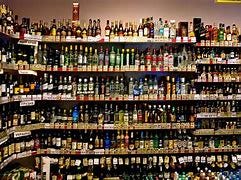For someone who touts himself as a collaborator who brings people together, Mayor Brandon Johnson certainly has a knack for rubbing folk the wrong way. The mayor, who is groping to salvage any part of his pledges to generate additional revenue; and has yet to realize any success, is proposing to bump the taxes on booze and beer.
Mayor Brandon Johnson wants to raise the tax on booze by 34 percent.
Johson is seeking a 35 percent tax increase on beer.
As with so many taxes Chicago ranks the highest and the transfer tax on spirits is no exception. Currently, that tax is 13.73 per gallon here, compared to $8 in Illinois. Approximately $18 would be the new tax.
Having amassed a string of revenue failures, the Johnson Administration has devolved to the ‘throw it against the wall and see what sticks’ decision-making method. However, what is sticking is not passing muster with the public or the city council. Exactly 41 aldermen signed a letter last month outlining why they disagreed with Johnson on cancelling the ShotSpotter gun technology. A veto threatened by Johnson never surfaced.
Andy Deloney, senior vice president of the Distilled Council of the United States, termed the increase detrimental as it will harm the hospitality industry which has yet to fully recover from the pandemic and supply chain issues or staffing shortages or inflation. He offered an additional tax means higher prices which translates into going to other counties
.Johnsons’ defense is “our budget reflects the commitment to invest in people and neighborhoods, ensuring that every Chicagoan has the opportunity to thrive.
The Chicago City Council will address the matter during its upcoming budget hearings.
Johnson, whose idea of implementing a tax supposedly to help the homeless was torpedoed by voters in late March. It was slated to bring in more than $1 million from real estate transfer taxes. Last month the entire Chicago Public Schools Board of Education resigned over a tiff between Johnson and the top school official.
The rookie mayor also is getting serious pushback in the form of the Illinois Retail Merchants Association for the scheme to take away the entire seven cents per bag tax currently in place. Retailers charge customers seven cents for every bag they provide customers to carry their purchases. Johnson wants to grab the entire seven cents, opposed to the two cents the city currently receives. That could mean $4.5 million toward the $1 billion budget shortfall Chicago is facing.
A former Cook County legislator, Johnson might find success if he abandoned his strategy of blaming his failures on prior administrations. From the moment he decided to run for mayor he should have been identifying and exploring solutions to the issues, if they were indeed tenured in city government. His seemingly irreversible error was choosing to ignore the business community which likely could have provided invaluable insights on not letting the budget deficit morph past $1 billion.
Instead, he chose to charge onto the fifth floor filling jobs with a battalion of friends and union members, all of whom were inexperienced in government, municipal finance or both.





